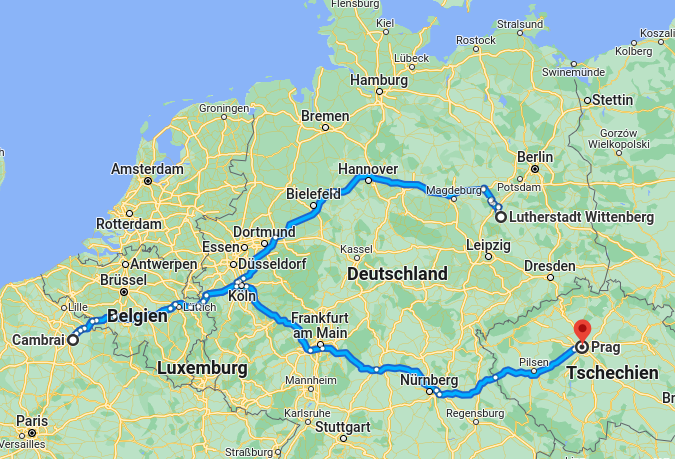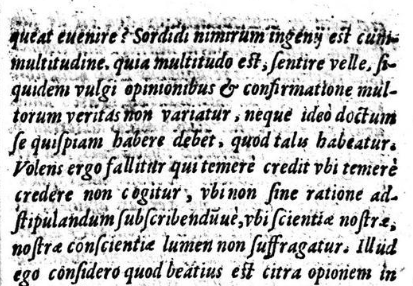He said something like it (possibly the same thing), then later penned a book that says a similar thing (and much else in the same vein). Both speech and later book are in Latin, so the quote in Italian is neccessarily not the true wording.
There is a citation site that describes the provenance of the quote (or something very similar, we are talking about the translation of a quote after all) as such:
Included as a quotation in The Great Quotations (1977) by George
Seldes, p. 35, this appears to be a paraphrase of a summation of
arguments of Bruno's speech in a debate at the College of Cambray (25
May 1588)
The problem with this account is that, according to wikipedia and all sites that i could find, Bruno was in Wittenberg in 1588 (had been for a few years) and left for Prague somewhen between March and June of that year (that varies across sources). To make an appearance at Cambrai in 1588 would be quite the detour...
 Indeed, Bruno is attested at Cambray/Cambrai in 1586, when he left it for Wittenberg.
Indeed, Bruno is attested at Cambray/Cambrai in 1586, when he left it for Wittenberg.
Yet what happened in 1588 was that the "Camoeracensis Acrotismus seu rationes articulorum physicorum adversus Peripateticos" came out(translation: 'Cambrai lecture, or arguments for the theses in physics against the Aristotelians') - this is,from what i can see, and, given the confusing naming scheme, if it is truly the same book (Acrotismus seu Rationes articulorum physicorum adversus peripateticos — Wittenberg, 1588) - one long rant about how bad it is that the majority shapes what is considered right and true. One part of it looks pretty close to the quote (Transcription mine):

Sordidi nimirum ingeny est cum multitudine, quia multitudo est, sentire velle, si quidem vulgi opinionibus & confirmatione multitorum veritas non variatur, neque ideo doctum se quispiam babere debet, quod talus habeatur. ------------ (Translation (bad, please feel free to improve on it): ------------ It is, of course, a dirty mind that wants to think with the multitude because they are a multitude, if indeed the truth is not varied by the opinions of the common people & the confirmation of the multitude, and therefore no one ought to be taught to drool, because he is considered to be a fool.)
A pretty ok match to the quote, i think. A work on that book(s) has some insight on how it was produced: Bruno did one last speech at Cambrai, which was pretty tumultuous, he got bodily thrown out but had to swear to come back the next day to explain himself further (?) - instead he left for Wittenberg (which had already been his plan beforehand), where he authored a book that somehow is supposed to be the speech plus explanations (...or something along those lines)


